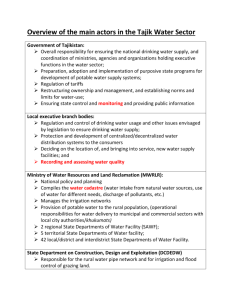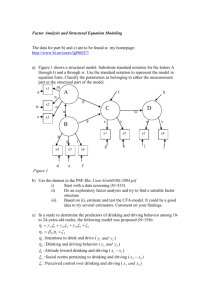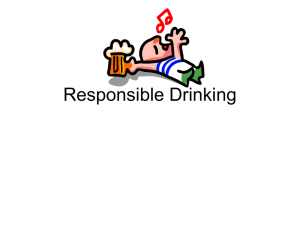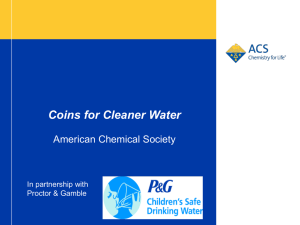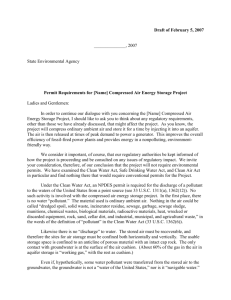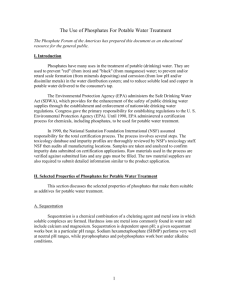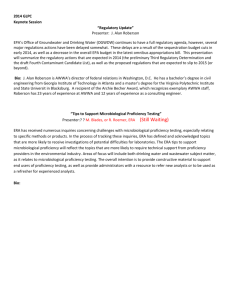compliance water supply - HCA Ethics & Compliance
advertisement
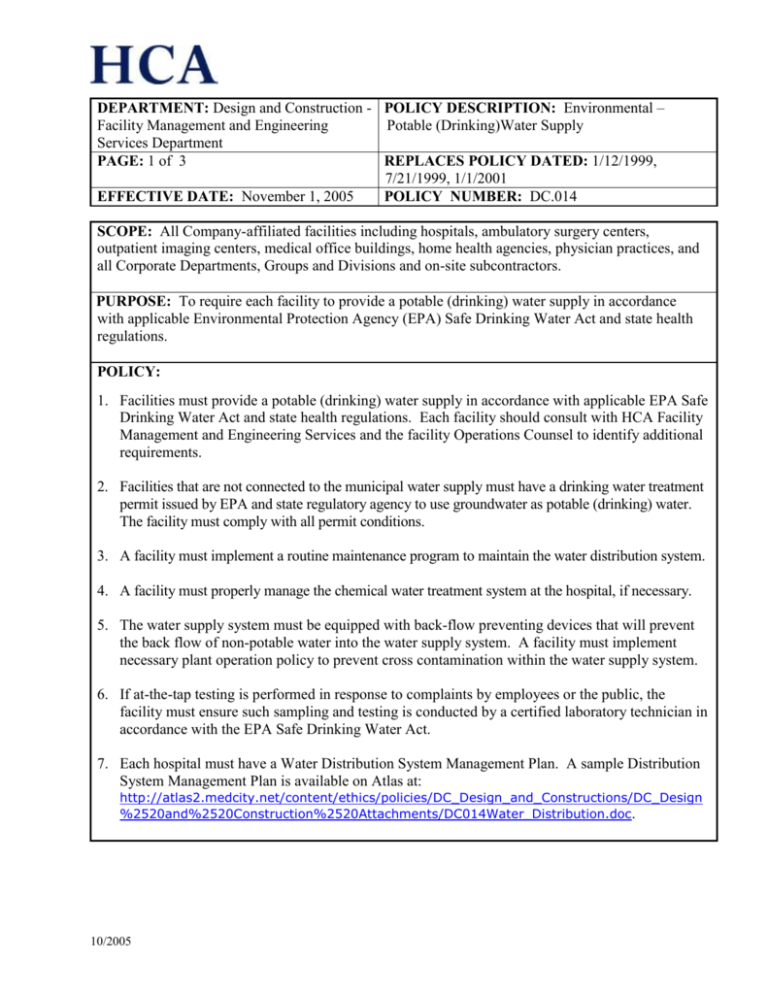
DEPARTMENT: Design and Construction - POLICY DESCRIPTION: Environmental – Facility Management and Engineering Potable (Drinking)Water Supply Services Department PAGE: 1 of 3 REPLACES POLICY DATED: 1/12/1999, 7/21/1999, 1/1/2001 EFFECTIVE DATE: November 1, 2005 POLICY NUMBER: DC.014 SCOPE: All Company-affiliated facilities including hospitals, ambulatory surgery centers, outpatient imaging centers, medical office buildings, home health agencies, physician practices, and all Corporate Departments, Groups and Divisions and on-site subcontractors. PURPOSE: To require each facility to provide a potable (drinking) water supply in accordance with applicable Environmental Protection Agency (EPA) Safe Drinking Water Act and state health regulations. POLICY: 1. Facilities must provide a potable (drinking) water supply in accordance with applicable EPA Safe Drinking Water Act and state health regulations. Each facility should consult with HCA Facility Management and Engineering Services and the facility Operations Counsel to identify additional requirements. 2. Facilities that are not connected to the municipal water supply must have a drinking water treatment permit issued by EPA and state regulatory agency to use groundwater as potable (drinking) water. The facility must comply with all permit conditions. 3. A facility must implement a routine maintenance program to maintain the water distribution system. 4. A facility must properly manage the chemical water treatment system at the hospital, if necessary. 5. The water supply system must be equipped with back-flow preventing devices that will prevent the back flow of non-potable water into the water supply system. A facility must implement necessary plant operation policy to prevent cross contamination within the water supply system. 6. If at-the-tap testing is performed in response to complaints by employees or the public, the facility must ensure such sampling and testing is conducted by a certified laboratory technician in accordance with the EPA Safe Drinking Water Act. 7. Each hospital must have a Water Distribution System Management Plan. A sample Distribution System Management Plan is available on Atlas at: http://atlas2.medcity.net/content/ethics/policies/DC_Design_and_Constructions/DC_Design %2520and%2520Construction%2520Attachments/DC014Water_Distribution.doc . 10/2005 DEPARTMENT: Design and Construction - POLICY DESCRIPTION: Environmental – Facility Management and Engineering Potable (Drinking)Water Supply Services Department PAGE: 2 of 3 REPLACES POLICY DATED: 1/12/1999, 7/21/1999, 1/1/2001 EFFECTIVE DATE: November 1, 2005 POLICY NUMBER: DC.014 PROCEDURE: 1. If a facility holds a water supply permit, the facility must ensure water quality testing is performed by a qualified testing firm certified by the state. Reporting to the agency must be carried out as stated in the permit conditions. 2. Some facilities use municipal drinking water as the primary water supply and an on-site groundwater well for emergency backup water. If well water is used as a backup, the facility must ensure periodic groundwater quality sampling and testing is performed. 3. Plant Operations or Facility Management must implement a routine maintenance program to properly maintain the water distribution system. 4. Facilities must maintain a list of water supply system treatment chemicals. Facilities must properly manage storage of water treatment chemicals and related treatment equipment. Technical assistance related to water treatment systems is available through the HCA Facility Management and Engineering Services Department. 5. The facility must ensure any modifications to the water distribution system are performed by a qualified technician and conform to local plumbing codes. Backflow preventors must be installed to prevent cross contamination. 6. The facility must include periodic at-the-tap testing in its preventive maintenance program. If atthe-tap testing is performed in response to employee or public complaints, the facility must ensure sampling and testing is conducted by a certified laboratory technician in accordance with the EPA Safe Drinking Water Act. 7. Routine tap and shower head cleanings prevent the spread of disease. Each facility must develop a schedule to disinfect shower heads and taps throughout the facility, including those in patient rooms. 8. If a routine test identifies the presence of pathogenic microorganisms in the water distribution system, the facility must undertake appropriate corrective actions immediately. The facility must undertake re-testing at the completion of corrective actions to ensure the safety of the drinking water supply. RECORDKEEPING: A compliance file must include at least: Water treatment chemical inventory; Drawing of plumbing/mechanical system, and any improvements; 10/2005 DEPARTMENT: Design and Construction - POLICY DESCRIPTION: Environmental – Facility Management and Engineering Potable (Drinking)Water Supply Services Department PAGE: 3 of 3 REPLACES POLICY DATED: 1/12/1999, 7/21/1999, 1/1/2001 EFFECTIVE DATE: November 1, 2005 POLICY NUMBER: DC.014 Preventive maintenance program for water supply system Water system maintenance records; and Water quality sampling and testing records. Testing results and reports from a certified lab must be retained for a period of 7 years. REFERENCES: Primary and Secondary Drinking Water Regulations, 40 CFR 141 and 143 DC.014 – Attachment: Water Distribution System Management Plan 10/2005
